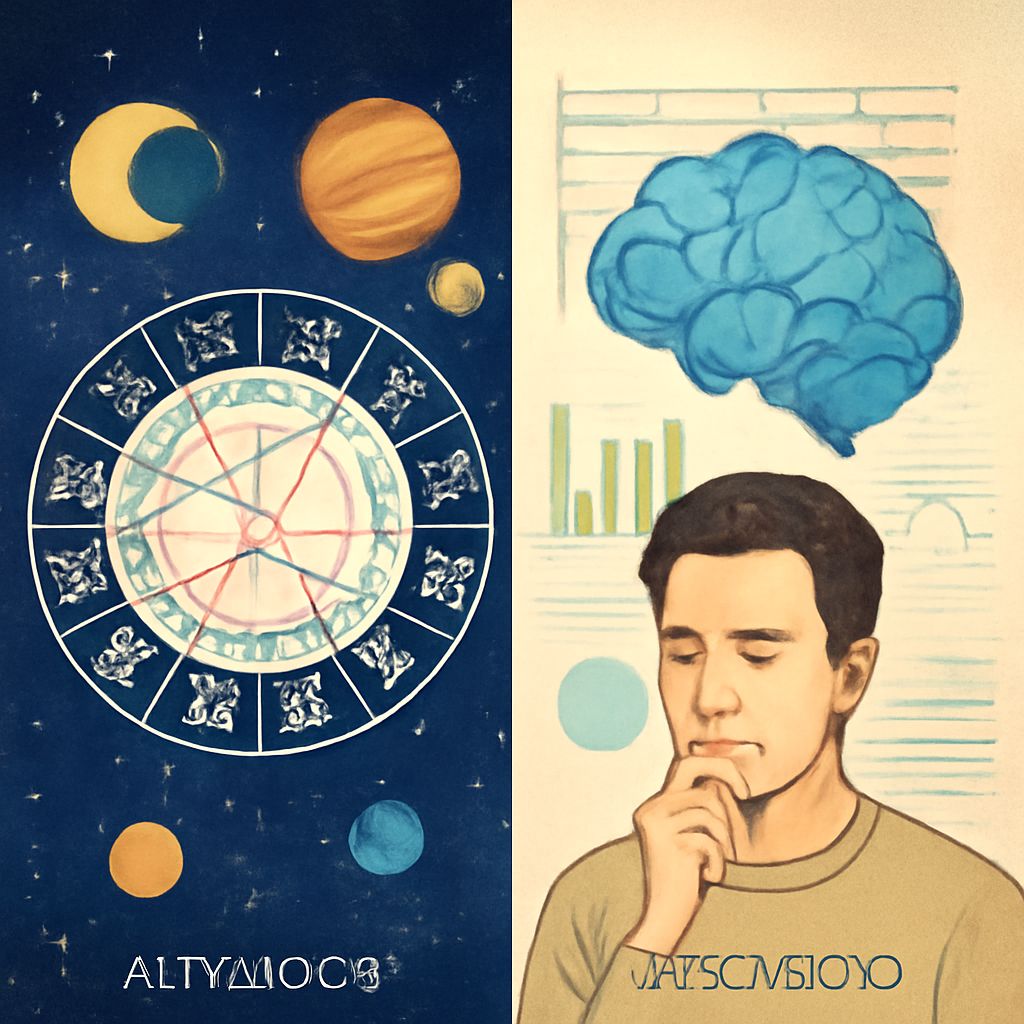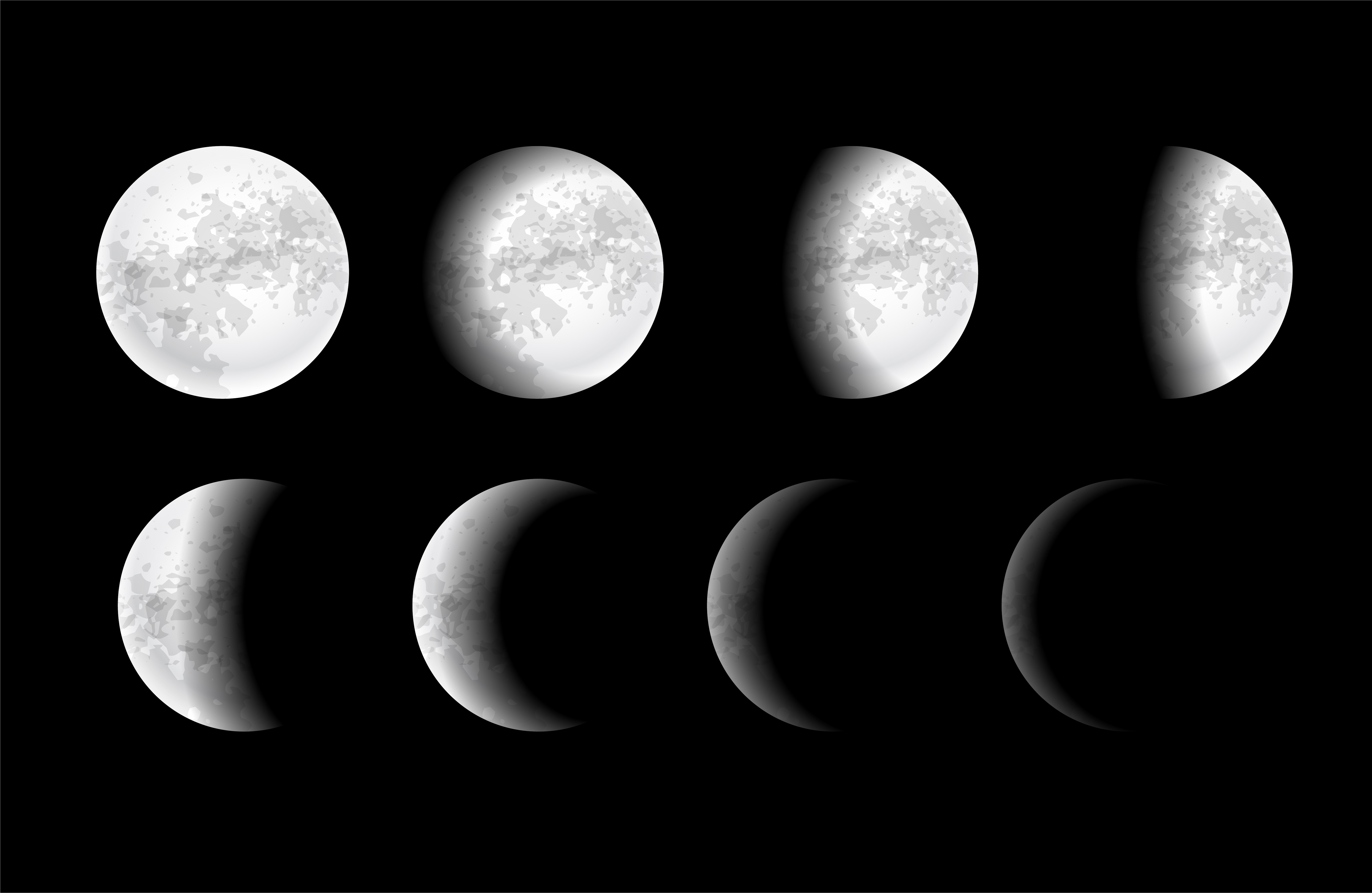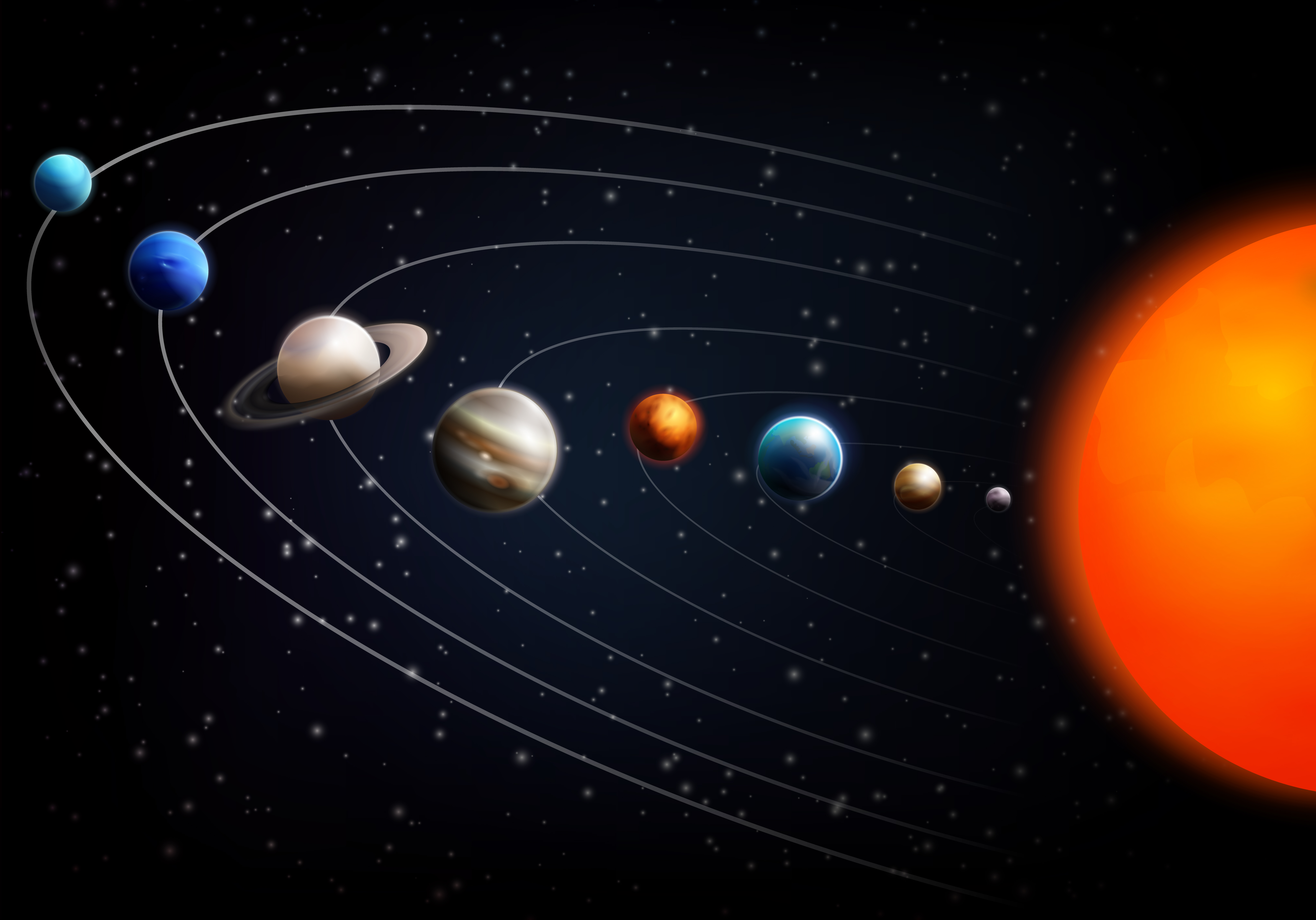Astrology vs. Psychology: Can Your Birth Chart Predict Depression Symptoms?
Depression is a complex mental health condition that affects millions worldwide. It is influenced by multiple factors, including biological predisposition, environmental stressors, and psychological traits. However, many people also turn to astrology to seek answers about their personality, life challenges, and mental well-being.
Two distinct perspectives of astrology and psychology offer different approaches to understanding and predicting depression symptoms. Astrology suggests that celestial bodies at the time of one's birth shape personality and emotional tendencies, which may make someone more prone to mental health struggles. In contrast, psychology relies on scientific studies to analyse how certain personality traits increase susceptibility to depression.
This article takes a deep dive into both perspectives, exploring whether astrological birth charts have any credibility in predicting depression or whether psychology remains the superior, evidence-based approach.

Astrological Perspective: Birth Charts and Depression
Astrology posits that a person's mental health can be understood by examining their natal chart. Astrologers believe that planetary placements, aspects, and house positions play a crucial role in shaping emotional resilience and psychological challenges. Below are some key astrological elements associated with depression:
The Role of the Moon in Mental Health
The Moon governs emotions, instincts, and subconscious reactions in astrology. It represents one's inner world, emotional security, and mental stability. If the Moon is "afflicted"—meaning it forms harsh aspects with malefic planets like Saturn, Mars, or Rahu—it can indicate emotional instability, mood swings, and a higher tendency toward depression.
- Moon-Saturn Conjunction or Opposition: Saturn is known as the planet of restrictions, hardships, and delays. When it negatively influences the Moon, it can lead to emotional detachment, loneliness, and a pessimistic outlook on life.
- Moon-Mars Harsh Aspects: Mars represents aggression and impulsivity. If it negatively impacts the Moon, it may cause heightened anxiety, emotional outbursts, and difficulty regulating feelings.

Water Signs and Emotional Sensitivity
Water signs—Cancer, Scorpio, and Pisces—are deeply intuitive and emotional. While this sensitivity can be a strength, it can also make individuals more susceptible to depression, especially if other challenging placements are present.
- Cancer Moons or Ascendants often struggle with over-attachment, nostalgia, and difficulty letting go of past trauma.
- Scorpio Moons or Ascendants are known for emotional intensity and internalizing pain, leading to deep psychological struggles.
- Pisces Moons or Ascendants can experience escapism and a tendency to feel overwhelmed by emotions, making them vulnerable to depressive episodes.
The Influence of Saturn and Rahu
Saturn and Rahu are often associated with karmic lessons, struggles, and psychological burdens. If they occupy or aspect key houses related to the mind, they may contribute to depressive tendencies.
- Saturn in the 1st House: Often linked to self-doubt, pessimism, and feeling burdened by responsibilities.
- Rahu in the 12th House: Can indicate subconscious fears, illusions, and mental confusion, sometimes leading to anxiety and depression.

House Placements and Mental Health Indicators
Astrologers believe that certain houses in the birth chart play a critical role in shaping mental health:
- 1st House (Self-Identity): If afflicted, it can cause self-esteem issues and identity crises.
- 3rd House (Thinking & Communication): Negative planetary aspects may result in overthinking, anxiety, or cognitive challenges.
- 6th House (Health & Daily Struggles): A poorly positioned ruler of this house can indicate chronic stress and mental health struggles.
- 12th House (Subconscious Mind & Isolation): If negatively influenced, it may indicate deep-seated fears, isolation, and emotional withdrawal.
Real-Life Examples of Astrological Depression Indicators
Some famous personalities have birth charts that align with astrological depression indicators. For instance, actor Robin Williams had a Cancer Sun, Pisces Moon, and Scorpio Ascendant, all in water signs, making him highly sensitive and emotionally intense. His chart also featured a Moon-Saturn aspect, possibly contributing to his lifelong battle with depression.
However, astrology remains a symbolic and interpretative framework. Let’s now contrast it with psychology, which relies on empirical data.
Psychological Perspective: Personality Traits and Depression
Unlike astrology, psychology bases its analysis of depression on scientifically researched personality traits and cognitive processes. One of the most established models in psychology is the Big Five Personality Traits, which include:
- Neuroticism (Most Closely Linked to Depression):
Individuals high in neuroticism are more prone to negative emotions like sadness, anxiety, and mood swings.
Studies show that neuroticism is a strong predictor of depression. - Conscientiousness (Protective Factor Against Depression):
Highly conscientious individuals tend to be disciplined and goal-oriented, reducing depression risk.
Low conscientiousness is associated with higher depression levels. - Extraversion (Social Connection vs. Social Withdrawal):
Introverted individuals have a higher risk of depression due to reduced social support and engagement.

Cognitive and Emotional Factors in Depression
- Rumination & Overthinking: Constantly dwelling on negative thoughts increases the risk of depression.
- Low Self-Efficacy: A lack of confidence in one’s ability to handle challenges can contribute to depressive symptoms.
- Emotion Dysregulation: Difficulty in managing emotions can worsen depressive episodes.
Longitudinal Studies on Depression
Psychological studies have shown that personality traits remain relatively stable throughout life and can predict long-term mental health outcomes. People with high neuroticism and low conscientiousness are more likely to experience chronic depression over time. Research suggests that individuals with persistent negative thinking patterns, poor stress-coping mechanisms, and difficulty in emotional regulation are at a greater risk of developing recurrent depressive episodes. Additionally, life experiences such as childhood trauma or prolonged stress can amplify these personality-based vulnerabilities, further increasing the likelihood of long-term depression. Early intervention and therapy can help mitigate these risks by promoting emotional resilience and adaptive coping strategies.

Conclusion
While astrology provides a symbolic and personal lens to understand emotional struggles, it lacks scientific validation in predicting depression. Psychological research, on the other hand, offers measurable insights into personality traits and their impact on mental health.
If you are experiencing depression, seeking professional psychological help remains the most reliable approach. Astrology may offer comfort and self-reflection, but it should not replace evidence-based mental health care.




